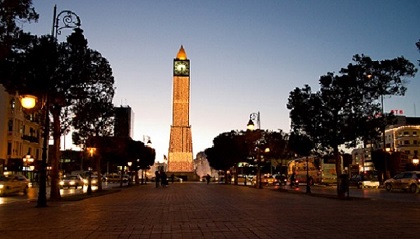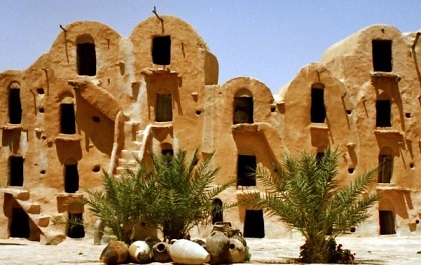Second International Conference on Information Systems for Crisis Response And Management - Mediterranean Countries |
|
ISCRAM-med 2015 Accepted LONG Papers
- Teresa Onorati and Paloma Diaz. Semantic visualization of Twitter usage in emergency and crisis situations
- Wassim Chtourou and Lotfi Bouzguenda. Extending AUML for Interaction Protocols Specifying in the context of Adaptive Coordination of Crisis Management Processes
- Imen Bizid. A Comparison Study of the State-of-the-art Features for the Identification of Prominent Microblogs Users in the Context of Disaster Mangaement : A Learning-based Approach
- Hossein Baharmand, Laura Laguna Salvadό, Tina Comes and Matthieu Lauras. On the Literature Divergences of the Humanitarian Supply Chain
- Aggelos Liapis, Antonis Kostaridis, Antonis Ramfos, Ian Hall, Andrea Degaetano, Nickolaos Koutras, Nina Dobrinkova, George Leventakis, Andrej Olunczek, Geert Seynaeve, George Boustras and Konstantinos Gogossis. A Position Paper on Improving Preparedness and Response of Health Services in Major Crises
- Maria Mikela Chatzimichailidou and Ioannis Dokas . Assessing Distributed Situation Awareness in Socio-Technical Systems with RiskSOAP
- Imen Hamed and Malika Charrad. Recognizing information spreaders in terrorist networks: 26/11 attack case study
- Yingwei Yan, Chen-Chieh Feng, Maffee Peng-Hui Wan and Klarissa Ting-Ting Chang. Multiple regression and artificial neural network for the prediction of crop pest risks
- Audrey Fertier, Anne-Marie Barthe-Delanoë, Johan Manceau, Sébastien Truptil and Frédérick Bénaben . Towards a support to stakeholders’ collaboration during a Loire river major flooding
- Alvaro Jose Peralta, Le Nguyen Tuan Thanh, Stinckwich Serge, Hanachi Chihab, Ho Tuong Vinh and Alexandre Bergel. A Tool for Assessing Quality of Rescue Plans by Combining Visualizations of Different Business Process Perspectives
- Carole Adam, Elise Beck and Julie Dugdale. Modelling the tactical behaviour of the Australian population in a bushfire
- Damian Jackson, Carlo Aldrovandi and Paul Hayes. Ethical Framework For The Large-Scale Use Of Social Media Data In Disaster Response
- Wala Rebhi, Nesrine Ben Yahia and Narjes Bellamine Ben Saoud. Towards an intelligent application of large scale community detection to support collaboration during emergency management
- M'Hammed Ali Oulhaci, Erwan Tranvouez, Sebastien Fournier and Bernard Espinasse. Improving players' assessment in Crisis Management Serious Games : the SIMFOR Project
ISCRAM-med 2015 Accepted SHORT Papers
- Ahmed Maalel, Lassaâd Mejri and Henda Hajjami Ben Ghézala. Towards a Generic Semantic Model for the Representation of Accident Scenarios in the Field of Transport
- Ghazi Sabri, Julie Dugdale and Tarek Khadir. Modelling PM10 Peaks Crises Using a Multi-Agent based Simulation: Application for the city of Annaba, North-East of Algeria
- Andreas Horndahl and Linus Gisslén. Dynamic and context aware reporting of observations from the field for situation assessment in crisis situation: An integrated system for information-gathering and sense-making
- Antonin Segault, Federico Tajariol and Ioan Roxin. A SKOS radiation safety thesaurus for people living in contaminated territories






